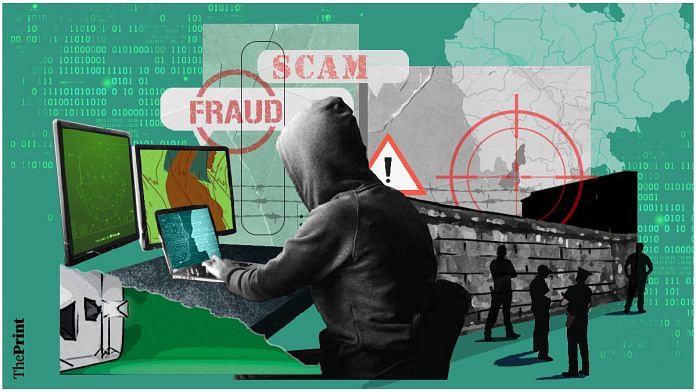New Delhi: The government has blocked more than 1,000 Skype accounts on the basis of complaints that fraudsters were masquerading as law enforcement officials to extort money from people.
The Indian Cyber Crime Coordination Centre (14C), under the Ministry of Home Affairs, said the these accounts were used for extortion, blackmail, and for “digital arrests”, during which victims are forced to sit idle before a screen while scamster impersonate officials of the state police departments, the CBI, the ED and others.
The agency explained the scammers scared citizens by saying “parcels” sent by them or in their name had illegal goods, banned substances or were fraudulent passports. People coughed up money when threatened with “police action”, it said.
Officers said these men wore uniforms and used studios made to look like a police station for the intimidation tactic, adding the module was being operated in a cross-border organised network.
“The Indian Cyber Crime Coordination Centre (I4C), under the Ministry of Home Affairs, coordinates activities related to combating cybercrime in the country. MHA is closely working with other Ministries and their agencies, RBI and other organizations to counter these frauds. I4C is also providing inputs and technical support to Police Authorities of States/UTs for identifying and investigating the cases,” the I4C said in a statement issued by the MHA.
In its annual press briefing held at the start of the year, the I4C had pegged the average daily cybercrime cases to be reported on the National Cybercrime Reporting Portal (NCRP) at 5,000 with 15,56,176 total crime reported last year.
According to their database, cases related to customer-care resolution, processing of refund amount and expiry of know your customer (KYC) documents contributed the most to this rising crime in India. Among those that originated abroad, scams carried out through investment and task-based payment modules were predominant.
(Edited by Tikli Basu)
Also read: ‘Lucrative deals, stolen OTPs’ — Delhi Police IFSO unit busts interstate racket of ‘online fraudsters’

